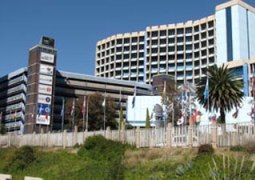
Reporting on the South African Broadcasting Corporation (SABC) to the Standing Committee on Appropriations yesterday, National Treasury told the committee that the SABC received a R3.2 billion recapitalisation in 2019/20 and that the entity has a balance of R1.18 billion remaining from that amount.
The committee also heard that staff costs remain a concern, and doubts remain as to the broadcaster’s ongoing sustainability and profitability, in a period of low revenue grow. Part of the SABC’s financial misfortunes are attributed to the non-funding of its public mandate. National Treasury told the committee a Bill is being planned to address this discrepancy and to determine how “to differentiate the public and commercial mandate, and that would the funding model for both”.
The committee heard that the South African Post Office (Sapo) is also at a critical juncture in its history. It received R2.947 billion in the in 2018 Adjustments Budget, R1.5 billion of which was allocated for universal service obligations (USO), which is part of its developmental mandate. However, committee members asked why Sapo is still unable to adequately service its clientele, given such a large capital injection. The committee heard that if Sapo not restructured it will collapse, and that it is unable to continue in its current form without government funding every year to cover its losses.
According to the National Treasury, of all public entities, Eskom received the lion’s share of recapitalisation funds. The entity received R49 billion in 2020, R56 billion in 2021 and R31.7 billion in 2022 budget allocations. It has an R8 million projected internal cost saving, which will rise to R12 million at the end of this financial year. But debt, liquidity and loadshedding challenges, among others, persist.
The Chairperson of the committee, Mr S’fiso Buthelezi asked: “Is there a value for money in these investments? And what we do to ensure that Eskom stops being a huge liability to our national budget?” In response the National Treasury said: “If we did not assist Eskom, it would not be in position to repay its debt. It would have defaulted and the state would be compelled to settle its R300 billion debt. Or it would be liquidated. In all, it would be in much worst condition than now.”
The committee heard that R2 billion of the R10 billion bailout for South African Airways (SAA) is allocated for employees’ cost. The National Treasury told the committee that the business rescuer salaries has not yet been made public. Mr Buthelezi remarked that National Treasury carries the cross of all departments’ expenditure transgressions because, as custodians of the public purse, it has an oversight role to play over the expenditure of public funds. “We have been told of turn-around strategies of public entities, but there is little progress in this regard. This impacts on committee members because it’s we who have to approve the recapitalisation of these entities that seems to bear no fruits.”
On the South African Police Service (Saps), Mr Buthelezi said it is unacceptable to hear of under spending when there is a spike in crime, particularly crimes of gender-based violence. “These are implications that should be considered when the police department does not spend funds allocated to it,” he added.
He further urged the delegation from Treasury to contemplate the implication of non-expenditure in relation to job creation, economic stimulation and to our debt to gross domestic product ratio. “Non-expenditure by government departments has cross-sectional effects and implications on socio-economic programmes of government. As such, it should not be treated lightly, but as a sign of incompetency and non-compliance if not an indictment on our government developmental agenda,” he said.
Abel Mputing
17 February 2021

